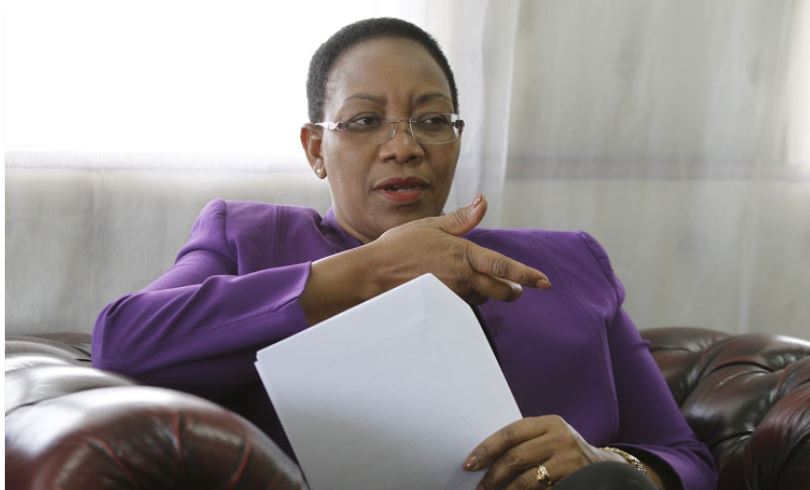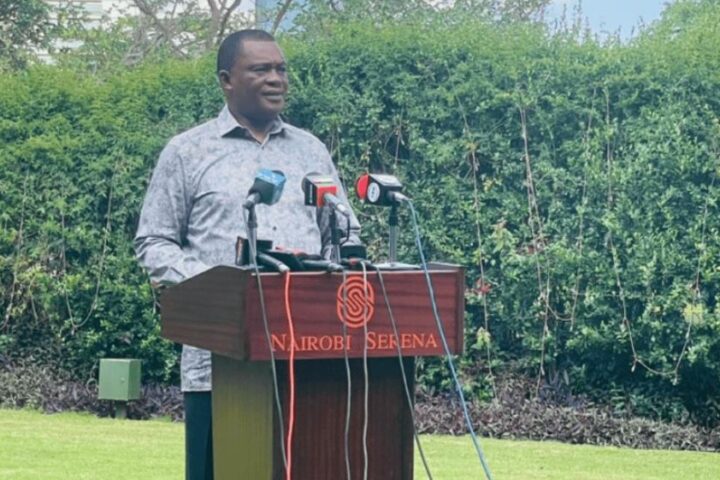
The UHC pilot was rolled out in four counties: Kisumu, Nyeri, Machakos, and Isiolo, with 3.2 million people reported to be registered for the Afya Card.
As the government prepares for a countrywide rollout of UHC, Health Cabinet Secretary Sicily Kariuki talked exclusively to the Star about the outcome of the pilot and the planned national rollout.
Below are some excerpts from the interview:
With nearly-free services in the pilot counties, has the health-seeking behaviour of people changed?
So far, we have recorded an average increase in the utilisation of health services, ranging from 20 per cent to 44 per cent. This increase is evident in both outpatient visits and inpatient visits. Most of the citizens who are seeking services in health facilities are presenting with the common ailments and conditions that form the top 10 causes of diseases in Kenya.
How many health workers are taking part in the pilot?
The pilot is accessible in all public health facilities in the four counties. And all health workers attached to public facilities are taking part in the exercise. This includes all publicly employed doctors, nurses, clinical officers, laboratory and pharmaceutical technology officers and all allied health workers.
Please share some of the lessons learnt from the pilot
The main lesson is that for UHC to succeed, we must strengthen our health systems. This means we must have a robust financing mechanism, a well-trained and adequate workforce, reliable information on which to base decisions and policies; and we also need well-maintained facilities and logistics to deliver quality medicines and technologies.
But most importantly, we must move towards a primary health care approach. We must increase access to services at the community level, and ensure these services meet the needs of the community and are responsive to their needs. With primary health, we can keep 80 per cent of people out of the hospital.
As I have mentioned, a key success of the UHC pilot is in the availability of essential medicines and commodities in the public facilities.
Moving forward, essential medicines must be available in all facilities. We must bring back confidence in the system.
The ministry and counties also reaffirm the key role that health workers play in ensuring the success of the UHC programme.
How much does the pilot cost?
We have allocated Sh3.9 billion, above the counties’ allocation to health. This money has not even been fully used up. This tells you quality health is not necessarily the amount of money you have. Cuba was able to achieve the great milestones (Cuba has a life expectancy of 80 years) when it was shut out by the rest of the world. You can manage the little you have to achieve good outcomes.
When should we expect the national scale-up of UHC?
In the past seven months, we have picked key lessons from the pilot exercise. The ministry and county governments are currently engaging in adapting these key lessons into a UHC national scale-up model. After the consolidation of these lessons, the President will launch the national scale-up of the UHC programme.
How will this happen — will you take a phased approach or adopt the entire benefit package at once?
The evidence we have from other countries who have made strides in the UHC journey informs us that we require a progressive approach to ensure sustainability.
A key element of UHC is the ‘U’, which stands for universality. This means a country’s entire population should have access to the benefits package. The government is, therefore, working to ensure national scale-up involves a package that can be accessed by the entire population.
The benefits package will be accessed across all counties. In areas where there may be county-specific needs, these will be adapted into the package.
What will be the annual cost of the national roll-out?
Upon joint consultation with county governments on the lessons learned in the pilot exercise and development of a UHC national scale-up model, the Ministry of Health and Council of Governors will share the aggregated resource needs for national scale-up.
We anticipate this consolidation will be finalised in the coming weeks.
Read the full interview HERE.






